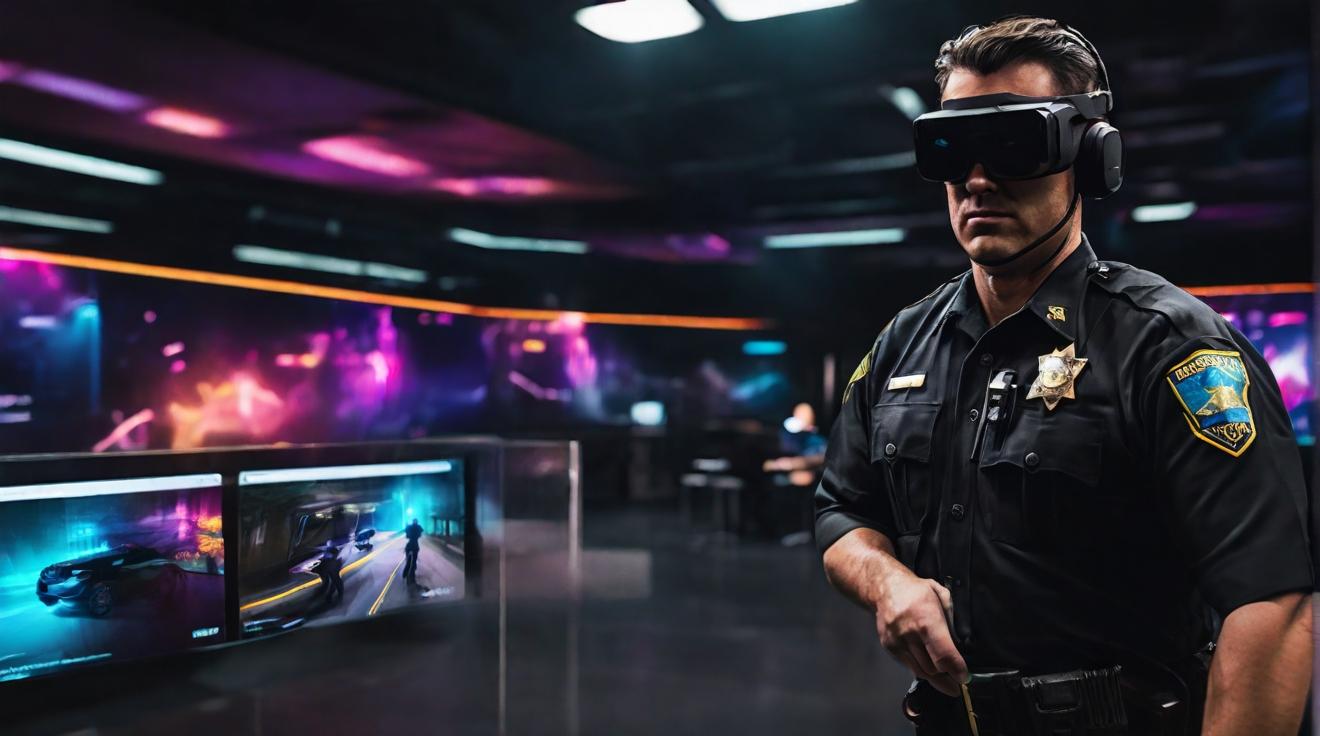Pueblo County Sheriff's Office Revolutionizes Training with Virtual Reality
In an innovative leap forward, the Pueblo County Sheriff's Office (PCSO) is setting the standard for law enforcement training in Colorado. Marking itself as the pioneer in the state and one of only 15 across the United States, the PCSO has embraced Virtual Reality (VR) technology to enhance deputy training programs, integrating critical thinking, conflict de-escalation techniques, and more into their curriculum.
Sheriff David Lucero lauds the new VR system as a groundbreaking tool that provides deputies with an immersive experience of various real-world scenarios. This advanced technology aims at preparing officers for interactions involving individuals in crisis, including those experiencing mental health issues or living with disabilities. "The VR simulation mirrors real-life situations, offering a safe and controlled environment for officers to learn and practice," Lucero explained.
Cost-Effective and Comprehensive Training Solution
The VR training program, which currently features 10 headsets, comes with an annual cost of approximately $29,000. This cost, as outlined by Sheriff Lucero, represents significant savings for the department when compared to traditional methods. For instance, live-fire taser training, which can be costly and less comprehensive, stands at about $75 per shot with a yearly budget impact of approximately $39,750.
Lucero emphasized, "The VR training is not only more economically efficient but also provides a more diverse range of scenarios that officers might encounter on the job, from dealing with subjects resisting arrest to understanding the nuances of taser deployment at varying distances."
One of the major advantages of this VR system is its flexibility. The headsets do not require a specific setting for use—only a safe space and an instructor to guide and offer feedback. This means training can be conducted virtually anywhere, making it an accessible tool for all deputies.
Promoting Empathy and Emotional Intelligence
The VR scenarios are meticulously designed to foster empathy and emotional intelligence among officers. By placing deputies in the shoes of those experiencing a disability or mental illness, the training strives to improve how officers perceive and react to individuals in crisis. This aspect of the training has been praised by Colorado Attorney General Phil Weiser, who stressed the importance of preparing officers for the emotional and mental challenges of their duties.
Weiser shared concerns over incidents where officers, unprepared for the psychological impact of their job, have made grave errors. "We need to equip our officers with not just physical but emotional and psychological tools to handle the complexities of modern law enforcement," Weiser commented.
Future Prospects and Continuous Updates
Sheriff Lucero is optimistic about the potential of VR training and plans to have every deputy in the department trained with the headsets in the coming months. With continuous updates and new scenarios being added to the VR training program, the PCSO is committed to providing their deputies with the most comprehensive and up-to-date training available.
As this pioneering program unfolds, it sets a benchmark for law enforcement agencies across Colorado and the United States. The Pueblo County Sheriff's Office's adoption of VR technology illustrates a significant stride towards more empathetic, effective, and economically efficient law enforcement training.
Analyst comment
Positive news: Pueblo County Sheriff’s Office revolutionizes training with virtual reality, enhancing deputy training programs, promoting empathy and emotional intelligence. Cost-effective and comprehensive training solution with significant savings compared to traditional methods. Future prospects include training every deputy in the department and continuous updates to the VR training program. Analyst prediction: The market for virtual reality in law enforcement training is expected to grow as more agencies recognize the benefits and cost-effectiveness of this technology.













